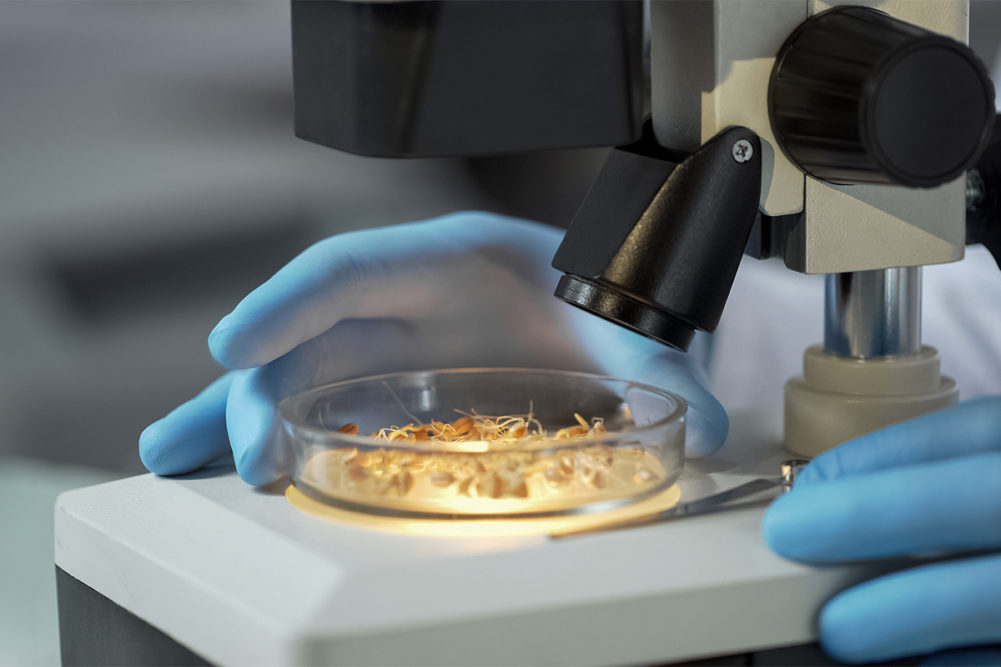ROSARIO, ARGENTINA – Bioceres Crop Solutions announced on June 27 that the US Food and Drug Administration (FDA) has concluded its evaluation of the company’s proprietary drought-tolerant HB4 wheat variety and has no further questions regarding the genetically modified wheat’s safety. The news comes just days after Argentina-based Bioceres said it was moving forward in its effort to obtain approval to plant and produce its genetically modified drought-resistant wheat in Australia, with a goal of receiving planting approvals in 2023.
Bioceres said the conclusion of the voluntary consultation program with the FDA is a key step toward commercial enablement in the United States, which is awaiting approval from the US Department of Agriculture (USDA). The United States is the fifth largest wheat producer, with an average of 15 million hectares planted every year, and the third largest exporter, holding a key position in the global wheat trade.
The FDA’s conclusion follows recent approvals by Brazil, Colombia, Australia, and New Zealand for use in food and feed. HB4 wheat is commercially authorized for production and consumption in Argentina, where five varieties have been cleared for registration in the current crop season.
Bioceres said HB4 drought-tolerance technology has been shown to increase wheat yields by an average of 20% in water-limited conditions, a key adaptation that favors double-cropping systems, where water management is increasingly critical. Under no-till practices, HB4 soy-wheat rotations result in an estimated 1,650 kilograms of carbon fixed into the soil per hectare per year, compared to positive emissions from conventional soy monoculture, Bioceres said.
The US Wheat Associates (USW) and National Association of Wheat Growers (NAWG) issued a joint statement, cautioning that “the finding by the FDA is not an approval for this or any other transgenic wheat to be planted for commercial sale in the United States.”
But they also noted: “With global demand for wheat increasing every year, the need to produce more wheat in sustainable ways is clear. Drought had already reduced world wheat supplies and pushed prices higher before the invasion of Ukraine cut off supplies from the world’s fifth largest wheat exporting nation. A trait such as drought tolerance in wheat could help wheat growers in increasingly arid regions be more productive and ease food security concerns.
“The US wheat industry recognizes the benefits and value that can be created through the prudent application of modern biotechnology. USW and NAWG are guided by jointly approved ‘Wheat Industry Principles for Biotechnology Commercialization,’ which lay out specific steps expected from plant breeding companies if they wish to commercialize transgenic wheat in the United States. In addition, USW and NAWG support the ability of domestic and overseas customers to make purchases based on their preferences for specific wheat traits, classes, qualities and characteristics.”
The North American Millers’ Association (NAMA) said it will be closely monitoring the regulatory and commercial progress of the Bioceres product in other markets.
“The availability of high-quality, affordable wheat is essential for millers, and ultimately, consumers,” NAMA said. “There is growing demand for sustainably produced wheat that uses less water, fertilizer, fuel, and other inputs and at the same time drought has reduced wheat yields in the US and around the world. Drought-tolerant wheats like HB4 could help with global supply challenges.”
However, NAMA also noted that it “supports consumers being able to make food purchases based on their personal preferences and supported legislation requiring labeling of products that contain bioengineered food ingredients.”
Although most of the world’s corn and soybean crops, which primarily are fed to livestock, are genetically modified, GM wheat has been slower to gain acceptance since it is primarily consumed directly by humans in bread, pasta and other processed products.





